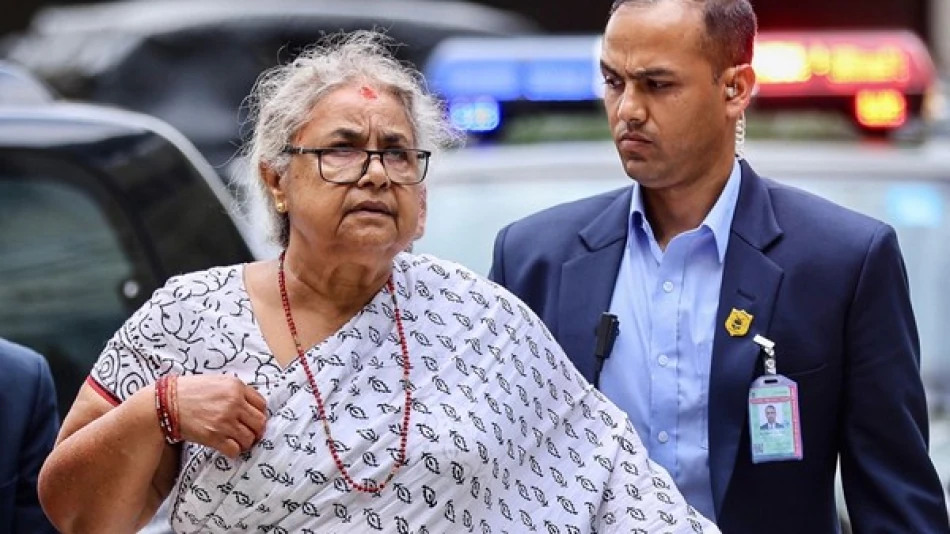
Nepal Emerges from Curfew, Restoring Calm and Normalcy
Nepal Lifts Curfew as Historic Female PM Appointment Calms Social Media Protests
Nepal has lifted curfews across its capital Kathmandu and surrounding districts following the appointment of the country's first female prime minister, marking a significant political shift after days of violent protests triggered by social media restrictions. The move signals how quickly digital rights issues can escalate into broader political crises in South Asia's fragile democracies.
Swift Return to Normalcy After Historic Appointment
Authorities in Kathmandu, Lalitpur, and Bhaktapur districts announced Saturday that residents could move freely as markets reopened and traffic resumed normal flow. The rapid restoration of order followed President Ram Chandra Poudel's Friday appointment of former Supreme Court Chief Justice Sushila Karki as interim prime minister.
Karki's appointment represents a watershed moment for Nepal, where women have historically been excluded from top political positions despite comprising over half the population. Her legal background may prove crucial as the country navigates constitutional challenges ahead of elections scheduled for March 5.
From Digital Restrictions to Political Crisis
The unrest began Monday with protests against social media platform bans, reflecting a growing global trend where digital rights have become flashpoints for broader political grievances. What started as demonstrations against online restrictions quickly escalated into violent confrontations, with protesters attacking government buildings and forcing police intervention.
This pattern mirrors recent events across South Asia, where governments increasingly view social media as both a threat to stability and a tool for political control. Nepal's experience echoes similar tensions seen in India, Bangladesh, and Sri Lanka, where digital restrictions have sparked widespread public backlash.
Political Implications and Market Stability
Constitutional Precedent
President Poudel's decision to dissolve parliament while appointing an interim leader follows Nepal's established constitutional framework, but the choice of a female judicial figure represents a calculated move to restore legitimacy. Karki's reputation for judicial independence may help stabilize institutions ahead of the electoral process.
Economic Considerations
The swift resolution likely prevents prolonged instability that could have damaged Nepal's tourism-dependent economy and ongoing infrastructure projects. Foreign investors and development partners, particularly India and China who compete for influence in Nepal, will view the quick restoration of order positively.
Nepal's position between two major powers makes political stability crucial for maintaining the delicate balance of international relationships that underpin its economic development strategy.
Regional Context and Democratic Resilience
Nepal's ability to resolve this crisis through constitutional means demonstrates the resilience of its democratic institutions, established after the 2006 end of its decade-long civil war. Unlike some regional neighbors where similar protests have led to prolonged instability or authoritarian crackdowns, Nepal's response suggests institutional maturity.
The appointment of a female leader, even temporarily, may influence broader gender representation debates across South Asia, where women remain significantly underrepresented in political leadership despite strong democratic traditions in countries like India and Bangladesh.
As Nepal prepares for March elections, the handling of this crisis may serve as a template for managing digital rights tensions that are likely to intensify across the region as governments grapple with balancing online freedoms against perceived security threats.
Most Viewed News

 Layla Al Mansoori
Layla Al Mansoori






